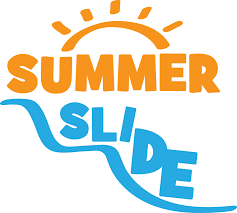 We’re about at the half way point in summer vacation. Most kids have gotten the wiggles out; lots of parents are looking ahead to September. The back-to-school ads have begun.
We’re about at the half way point in summer vacation. Most kids have gotten the wiggles out; lots of parents are looking ahead to September. The back-to-school ads have begun.
And it’s time for summer reading. Many schools assign books for students to read over the summer. These requirements are increasingly common as more research is done on the summer slide, that phenomenon where children lose weeks, and sometimes months, of skills during the long break.
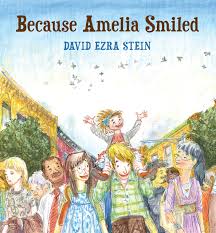 Almost all children lose some academic progress during the summer. In fact, research going back more than 100 years confirms what teachers know. Most kids-even those who have made good progress from September to June- lose two months or so of math skills and low-income kids lose more than two months in reading skills. According to a study by the Colorado Department of Education, “on average , children from low-income families lose nearly three months of grade-level equivalency during the summer months each year, compared to an average of one month lost by middle-income children.”
Almost all children lose some academic progress during the summer. In fact, research going back more than 100 years confirms what teachers know. Most kids-even those who have made good progress from September to June- lose two months or so of math skills and low-income kids lose more than two months in reading skills. According to a study by the Colorado Department of Education, “on average , children from low-income families lose nearly three months of grade-level equivalency during the summer months each year, compared to an average of one month lost by middle-income children.”
It’s clear that few children are immune.
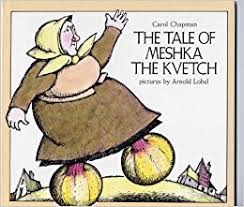 Assigning summer reading has been one attempt by schools to minimize the damage which can result in weeks of review- often four to six- before new material is presented in the new school year. With more and more learning being crammed into kids’ heads, in light of stronger state requirements, the less backsliding, the better.
Assigning summer reading has been one attempt by schools to minimize the damage which can result in weeks of review- often four to six- before new material is presented in the new school year. With more and more learning being crammed into kids’ heads, in light of stronger state requirements, the less backsliding, the better.
Unfortunately, kids, like adults, are procrastinators. Some may tackle their summer assignments right after the close of school, but most wait until the new clothes are purchased, the backpack is filled with notebooks and pens and they are almost out the door for that first day of a new year.
So here are some hints from an article by Amy Joyce of the Washington Post. It appeared in the Star Ledger on Monday, June 26. Children’s book author Kwame Alexander compares books to rides in an amusement park. To get a child to read, you have to let the child choose the “ride.” According to Scholastic, nine out of ten kids say that they are more likely to finish a book if they pick it out themselves.
Says Alexander, “Let them (kids) read what’s going to get them hooked. Find a book that’s going to get your child excited.” He suggested trying lots of different genres and then working with the books: do reader’s theater at dinner; read aloud to older kids; act out a poem; model reading by reading yourself.
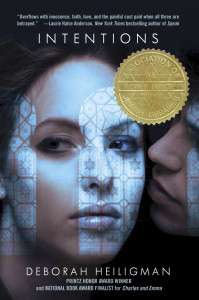 I am not going to recommend any specific books except for a few of my favorite fiction books. After all, Alexander says to let the reader pick the book. Suffice it to say that a trip to the library or to a bookstore should afford lots of opportunity for choice.
I am not going to recommend any specific books except for a few of my favorite fiction books. After all, Alexander says to let the reader pick the book. Suffice it to say that a trip to the library or to a bookstore should afford lots of opportunity for choice.
The Lampert Library has books perfect for young readers from pre-school through high school. While these book have a Jewish slant to them, they are not necessarily religious. The public library, of course, has a wide selection of books on every topic.
Finally, it’s good to remember findings from reading expert Stephen Krashen:
*Reading gets better when you practice.
*Reading helps improve writing.
*Children read more when they listen to and discuss stories.
Librarian favorites from the Lampert Library:
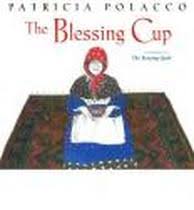 Picture Books
Picture Books
Chapman, Meshka the Kvetch turns into a pickle.
Edwards, A Hat for Mrs. Goldman. She needs one because she knits for
everyone but herself.
Gordon, The Flower Girl Wore Celery is about a verbal misunderstanding.
Hirsh, Could Anything be Worse than having a house full of noisy
Children? Yes!
Polacco, The Blessing Cup is a warm family story with Polacco’s distinctive
Illustrations.
Stein, Because Amelia Smiled a chain of kindness was formed.
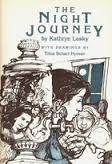 Fiction for Elementary Readers
Fiction for Elementary Readers
Arato, Mrs. Kaputnik’s Pool Hall and Matzo Ball Emporium includes an immigrant pet
dragon.
Gidwitz, The Inquisitor’s Tale is a sprawling, funny, serious adventure story set in medieval
France.
Kimmelman, Sam and Charlie series of books about a like-named boy and girl who are friends.
Lasky, The Night Journey has some heart stopping scenes.
Littman, Confessions of a Closet Catholic features Justine who wants to be like her best
friend.
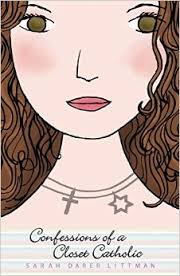 Young Adult
Young Adult
Heiligman, Intentions: even adults make mistakes and Rachel learns that she has
to be responsible.
Napoli, Daughter of Venice, Donata, sneaks out of her house in 16th century
Venice and faces consequences.
Savitt, Anna and the Swallow Man travel the countryside during World War II.
Sharenow, The Berlin Boxing Club is where Karl learns to box-and more- from
Champion Max Schmeling.
Wiviott, Paper Hearts provide hope amid the horror of Auschwitz. Based on a true
story.
- Is It Passover Yet? - Thu, Apr 18, 2024
- MESH Report April 9, 2024 - Thu, Apr 11, 2024
- Guess Who? - Wed, Mar 13, 2024
